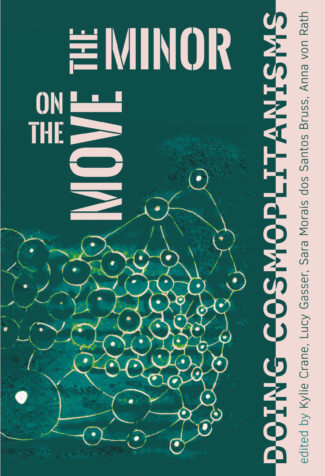Paperback, 272 pages
140 x 205mm
978-3-96042-098-9 / 2-973
22,00 Euro
Publication date: 08.04.2021
Illustrations by Sikho Siyotula
Paperback, 272 pages
140 x 205mm
978-3-96042-098-9 / 2-973
22,00 Euro
Publication date: 08.04.2021
Illustrations by Sikho Siyotula
Content
Taking up the figure of the cosmopolitan, the book moves beyond Eurocentric legacies of the term to trace densely interwoven histories of coloniality and cultural exchange. By engaging a wide array of academic and activist practices, the volume enables a productive consideration of how artistic testimony interrogates the rewritings of history. The notion of the minor speaks to the condition of those historically marginalized, and has of late reverberated in assessments of whiteness as innocent, fragile, and thus entitled to its historical privileges. The minor here is resituated as a critique against the underlying historicity of anti-blackness inherent to such concepts. The book’s discussions of mobility address gatekeeping and/as archiving by thinking through collaborative and institutionalised practices that work to engender, or restrict, movement. With a particular focus on transgressive practices and multiple positionalities, this volume collects critiques of structural inequalities and possible itineraries for redress. It will be a must-read for anyone interested in structural injustices in Germany, Europe and the world, in political practice, and in decolonizing modes of knowledge production.
The editors and authors are brought together through various collaborative projects facilitated by the Research Training Group minor cosmopolitanisms of the University of Potsdam. They include activists, artists and academics from across the globe.
With contributions from Gurminder K. Bhambra, Claudia Schippel, Carly McLaughlin, Anouk Madörin, Alana Lentin, Jaye Austin Williams, Mariya Nikolova, Jens Temmen, Saumya Jaipuriar, Moses März, Irene Hilden, Madhurima Majumder, Emilia Roig, Dirk Wiemann and Lars Eckstein.
Editors
With contributions from Gurminder K. Bhambra, Claudia Schippel, Carly McLaughlin, Anouk Madörin, Alana Lentin, Jaye Austin Williams, Mariya Nikolova, Jens Temmen, Saumya Jaipuriar, Moses März, Irene Hilden, Madhurima Majumder, Emilia Roig, Dirk Wiemann and Lars Eckstein.
Reading Sample / Cover
The paradigms of of postcolonialism and cosmopolitanism have emerged in recent times offering different responses to similar questions, the most pertinent, perhaps, being: How do we, with our manifest differences, live together in the world? (Gurminder Bhambra)



